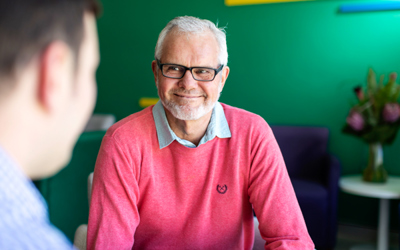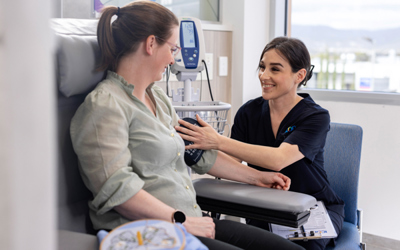Quick facts about blood cancer
Blood cancer occurs when one of the three types of blood cells which are produced in our bone marrow (the soft tissue inside our bones) grow in an uncontrolled and abnormal way
There are three types of blood cells which cancer can form in, including red blood cells (which deliver oxygen to the body), white blood cells (which help fight infection and disease) and platelets (which help the blood to clot and therefore prevent us from bleeding)
Types of blood cancer
There are three main types of blood cancer, depending on which blood cell the cancer starts in:
Treatment for blood cancer
There are many different types of treatment for blood cancer. Your treatment will depend on you and your cancer.






